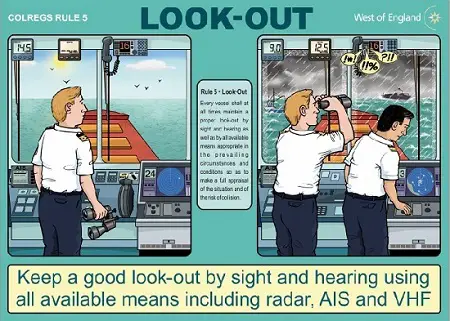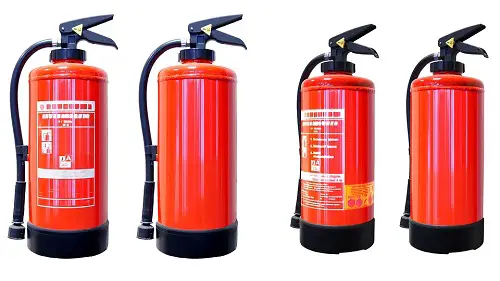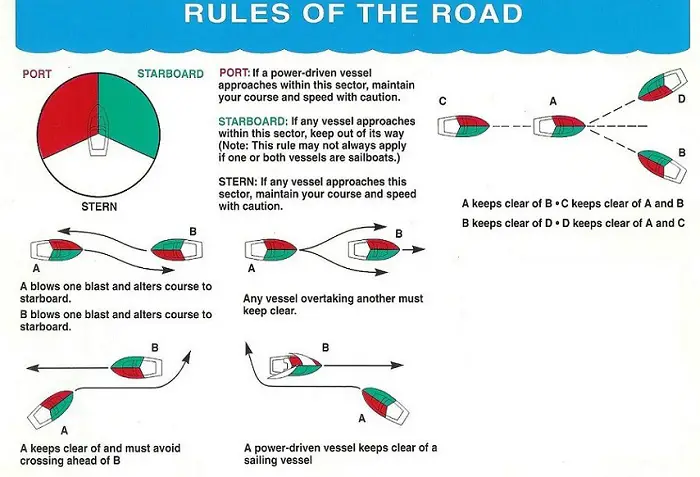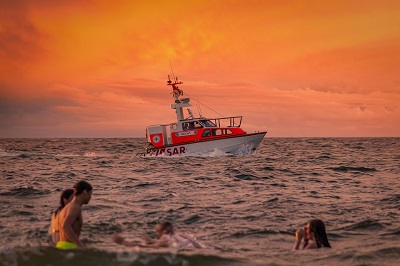Which practice reduces the risk of a dangerous boating emergency? The question may seem like an easy answer, but there is actually no correct answer. Unfortunately, there are no known practices that can guarantee your safety on the water. Boating accidents happen quickly and it is difficult to predict which actions can reduce the risk of a dangerous boating emergency.

However, there are some practices that can increase your safety on the water. For example, you might try implementing safety equipment such as life jackets and flares in your boat so that if something does go wrong, you will be prepared.
You might also try to stay away from alcohol and illegal substances which can seriously impair your judgment and increase your risk of getting into an accident.
You could also take measures such as checking weather conditions before going out on open water and using navigation tools when traveling through unfamiliar areas.
The practice that can be most helpful for reducing the risk of a dangerous boating emergency
Safe speed
The safest speed for a boat is the one that gives you enough time to respond to an emergency. Whether it’s avoiding another vessel or being able to turn quickly, maintaining a safe speed can reduce your risk of collision and boating emergencies in general.
How do you maintain a safe boating speed? We recommend that all sailors always have their engine ready and on standby for action. This way if there’s any sudden need for acceleration, such as someone falling overboard, you’re ready with instant response times.
Proper lookout
Proper lookout is an important part of boating safety. Whether you are navigating the waters by yourself or with a crew, it’s crucial to pay attention at all times to any potential dangers that may come your way. One of the most common boating emergencies is a collision with another vessel.

A sharp lookout for avoiding floating objects should also be practiced because many boats are sunk by large objects like logs or tree trunks that float in water.
Fire watch

Watch out for any fire hazards on board; proper fire watch practices could save your life. For fire hazards on board, make sure everyone knows what their responsibilities are during a fire watch and where they need to be in case there is one. It’s also helpful if everyone has access to emergency equipment like life jackets and fire extinguishers so they can put out small fires before they become dangerous ones.
Avoid careless movement
If you want to avoid the risk of a boating emergency, it’s important to pay attention while on your boat. Every passenger should sit in their proper place and not move around too much; this will help reduce the chance that someone falls overboard or causes something else dangerous.
If you’re a boat operator, it may be time to consider the very real safety concern of your passengers sitting in places not designed for sitting. For example, if someone is seated on a railing or on the engine cover, it could create a real issue.
Be aware of CO poisoning
If you’re on a boat without proper ventilation, which is often the case on smaller, less powerful vessels than larger cruisers or yachts, it’s important to ensure a steady supply of fresh air.
If you are looking for a way to reduce the risk of CO poisoning while boating, there are many ways that can help. For instance, just remember not to burn fuel unless it is necessary and if possible, try to stay near fresh air so you can breathe more easily.
A boater can follow the below facts to avoid boating emergency

Boaters should know the rules of navigation and follow them. It is important to understand where they are on the water. (rules of the road)
Boaters should always maintain a safe distance from other boats. They also have to maintain a safe speed.
It’s the responsibility of a boater to install a CO detector on their boat which can help prevent CO poisoning.
Every passenger must have proper life jacket/PFD and safety equipment which can help them in case any emergency occurs.
Boaters should avoid bad weather which can result in dangerous conditions.
Major types of boating emergencies
- Collision
- Grounding
- Fire
- Capsizing
- Falling overboard
- Poisoning of CO
Weather hazards emergencies
Wind warnings – Wind gusts and squalls are a serious threat to marine life.
Very high waves & long period swells
Tropical cyclones, sea fog & thunderstorms
Changing tides
Extreme weather conditions are best avoided by all boaters. If you do encounter one, make sure to know how to properly navigate through it.
When heading out onto the water, you always want to be prepared for anything. Marine forecasts and warnings can help you prepare by providing information on changing weather conditions, wind speeds, wave heights, tides times, and more. These vital safety checks will also inform you of any weather hazards that may be out there.
